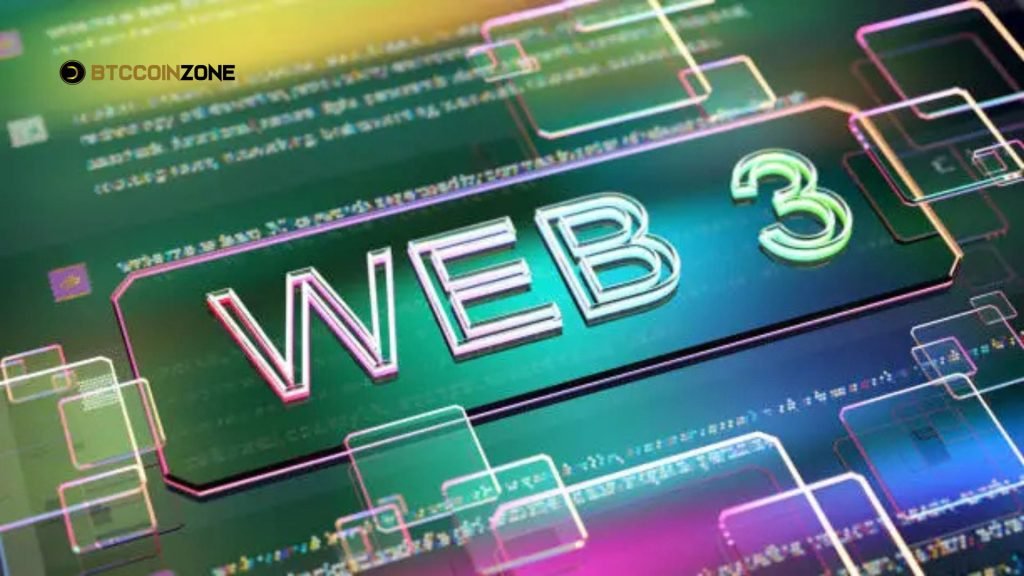Application-specific blockchains Will Decentralize Opinion

Blockchain technology has now reached the stage where we can have blockchain networks for the new age of applications and specific applications. So, with the help of the validity of those technologies, all the sectors like Bitcoin and Ethereum transactions are ensured that their ledgers are safe. It was foreseen that the universal market would reach the maximum extreme range from $5.88 billion in 2021 to $1314.03 billion by 2030, with a CAGR of 82.4%. The recent trend of blockchain, a technical solution made for special uses, is the latest news.
Specifically, Decentralizing applications (DApps) will be mainly such platform-specific as these platforms are faster, scalable, secure, cheap, and properly governed. The potential is remarkably high for the above-referred to particular blockchains because this sector is in progress. The impacts of blockchains personalized for the specific purposes of the industry are considered on this page. Please keep reading to learn why they represent decentralization’s bright future.
The top reasons for the application-specific blockchain
As opposed to the general-purpose blockchains that can run various applications, the botanicals in question are designed for one purpose only: to run one application. These innovative systems offer advanced capabilities like built-in virtual machines and consensus mechanisms as part of their unique designs. No, they are more than just a blockchain-based version of the program. Each dApp makes use of a blockchain that is specifically designed for its needs.
DApps or Dispersed applications are software programs that are not centralized, coming from one server, but a set of many computers (network), and these computers with equal power among them form a Distributed Ledger. L1 blockchains accomplish both consensus and execution on the same layer, whereas in the case of L2 blockchains, execution is separated from consensus. Some of the mentioned bespoke chains are Avalanche Subnets, Polygon Supernets, and Cosmos Zones, which help improve decentralization. The blockchain sector has a long history of endogenous support from critical players as well as engineers, and this is magnificent.
Such internal projects enable elite coders to come up with application-specific platforms. In addition to the usual sources of funds like equity, debt, and bank loans, they may be used as a bond vehicle to finance a blockchain initiative. They do account for quite a percentage of the decentralization of networks if stakeholders have implemented them well. Their importance to the future of decentralization is spelt out in the following:
Enable Platform Customization and Optimization
While Web3 technologies are becoming more widespread, the rather new concept of application-specific blockchains allows developers to tweak the set of properties of a blockchain for their particular applications. Such platforms bring the desired digital transformation to business processes, leading to substantial benefits on the road to innovation. Businesses that use these platforms can address their specific chain demands more effectively in cases where they are speed, privacy, or security.

Real is one of the best examples of companies introducing blockchain solutions for RWAs. Their one-of-a-kind approach to treating assets, such as real estate and commodities, as well as a few other long-lasting problems characteristic of decentralized finance, is what they consider to be their main unique value proposition. The Re.al company’s blockchain platform provides the necessary infrastructure, making buying and selling assets easier and ensuring the transactions’ compatibility and fluidity.
Scale applications up and down
Blockchains created to serve certain applications offer platforms more options to scale up or down depending on user needs. For instance, EY OpsChain Contract Manager (OCM), a blockchain technology built on Ethereum, helps automate agreements, reduce costs, and strengthen security. Besides smart contracts, which are self-executing code written on general-purpose blockchains, this is an application-specific blockchain.
Smart contracts automate and enforce agreements between parties and don’t change blockchains’ original properties. A creative contract audit process is needed to analyze codes for security flaws or problems and fix them. The world’s smart contracts have witnessed an explosive increase in CAGR rate of 82.2% per year, so the global market of $73,773.0 million in 2023 will be the result of the $684.3 million sector in 2022. The application-specific blockchain has something more than that, though this market expansion could be a factor in the potential scalability of blockchain technology in the future.
Maintain Platform Network Security and Data Privacy
Application-specific blockchains enhance network security and data privacy. By implementing blockchain technology into AI, they can gain command over networks and ensure secure information sharing. Blockchain, with its safe, decentralized ledger. Guarantees data integrity and transparency, and AI, with its complex data processing, brings them closer.
The application of blockchain technology to protect artificial intelligence data has proven to be the best way to integrate supply chain logistics and SCM. It provides compliance and traceability as well as unbreakable channels. The entertainment and media sectors also use the same technology. Decentralised AI networks operating on blockchain technology facilitate private and exclusive interactions between producers and consumers.
Low Transaction Fees Without Sacrificing Efficiency
By providing uniqueness, application-specific blockchains reduce transaction costs and increase efficiency, which promotes economic benefits. Moreover, they help cut costs by focusing on core functions and eliminating unnecessary features. Web3 validators on ETC and similar platforms receive a significant share of money and fees from Defi apps.
On the other hand, Defi apps operating on their own chains can accumulate all of the protocol charges. Which, in turn, enables them to earn even more money. Moreover, application-specific blockchains can tie the underlying token price to the actual token value of the blockchain. For instance, app chains can increase their token’s value. When their users select to pay their transaction fees with it,
They Enable Application Governance and Control
Application-specific blockchains are diverging from decentralized apps on general-purpose blockchains in that they provide complete governance and control of infrastructure. The shareholders, however, are not like other smaller scale communities that are sharing in a certain blockchain taking place. Both comply in the one-dimensional distributed ledger that is the glue between the application and the relevant protocol.
They support the introduction of needed improvements. That will best serve the user base. Similar to what Apple Screen Time does in dealing with widespread issues like children’s smartphone addiction. Blockchain allows a foolproof method to log sensor data and activities independent of malicious manipulation for sectors like car manufacturing. Blockchain technology has action trails and safety checklists to handle AI’s bad moves.
Also Read: Dogecoin (DOGE) Breakout Ready for a 100% Rally?
[sp_easyaccordion id=”2690″]




